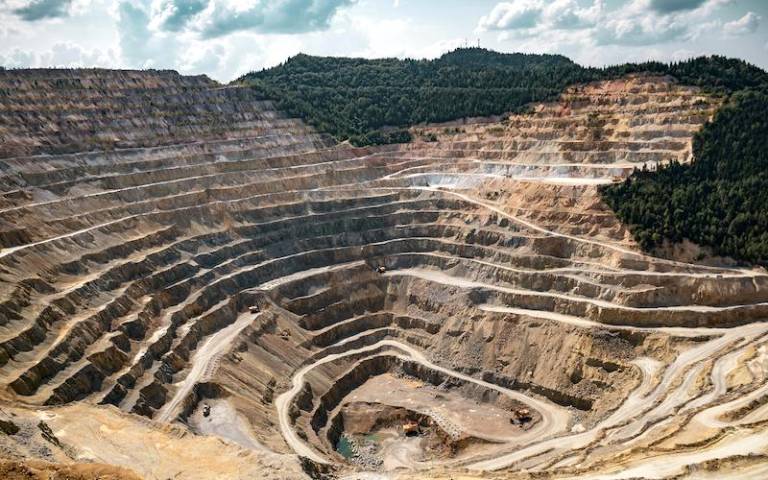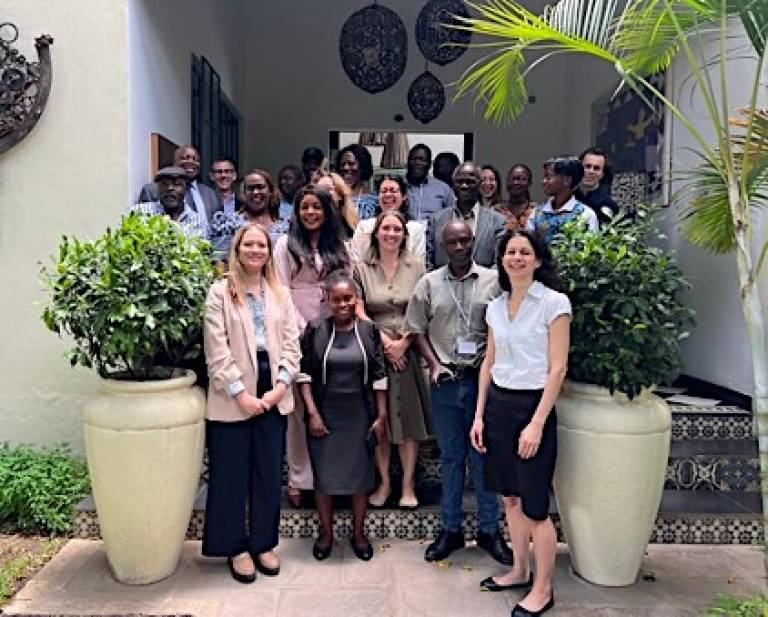Critical Minerals in Zambia: Mining for the green transition
13 March 2024
UCL Institute for Sustainable Resources researchers unveil insights on critical minerals in Zambia, emphasising policy needs for sustainable mining

In a bid to unlock Zambia's potential for sustainable growth, the Climate Compatible Growth (CCG) programme, backed by the UK Government, has been collaborating with partners in Low and Middle Income Countries. This initiative aims to foster growth while curbing carbon emissions, aligning economic prosperity with environmental responsibility.
In February 2024, researchers from the ISR visited Zambia as a part of the CCG programme. Rebecca Clube is Research Fellow here at the UCL Institute for Sustainable Resources and she co-hosted a workshop of experts in Lusaka to present the findings of a comprehensive study on critical minerals specific to Zambia. Joined by local partner Mwansa Matokwani of Green Earth Solutions and Karla Cervantes Barron of Cambridge University, the workshop drew a range of stakeholders, including NGOs, industry representatives and academics including fellow UCL Institute for Sustainable Resources researchers Jim Watson and Julia Tomei.
 Image: Group photo of the Zambian workshop participants, February 2024
Image: Group photo of the Zambian workshop participants, February 2024

Traditionally, copper and cobalt have been the backbone of Zambia’s economy, constituting over 70% of its export earnings. With the Zambian government's ambitious plans to increase copper production to 3 million metric tonnes by 2032, from 760,000 tonnes in 2022, Zambia’s economic trajectory is intimately tied to mining.
The surging demand for critical minerals due to the renewable energy transition has brought with it a huge increase in global interest in the field. A recent ISR paper by Metehan Ciftci forecasts a continuous surge in demand for major metals until 2050, with copper demand expected to soar by 140% relative to 2010 levels. To ensure this growing demand for critical minerals has a positive impact on the Zambian economy, the research indicates the need for a stringent, environmentally sound policy approach that is also appealing to international investors.
The workshop discussions shed light on health, safety, and environmental impacts associated with mining activities, including deforestation, biodiversity loss, and ecosystem disruptions. In exploring these challenges, the workshop paved the way for context-relevant policy recommendations which should help steer Zambia towards a more sustainable and equitable future, ensuring growth that is not just lucrative but also environmentally and socially responsible. We look forward to sharing the published policy-recommendations in due course.
Links
- Read Metehan Ciftci's paper on this subject - access this external webpage.
- Find out more about the work of Rebecca Clube - access this internal webpage.
- Find out more about the work of Jim Watson - access this internal webpage.
- Find out more about the work of Julia Tomei - access this internal webpage.
- Find out more about the work of Metehan Ciftci - access this internal webpage.
Image credit: pexels.com
 Close
Close

